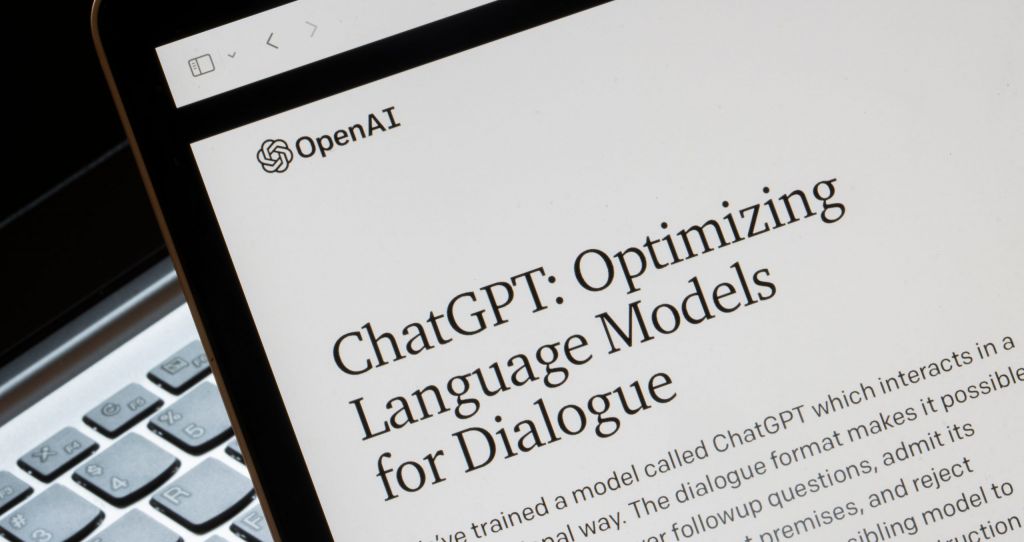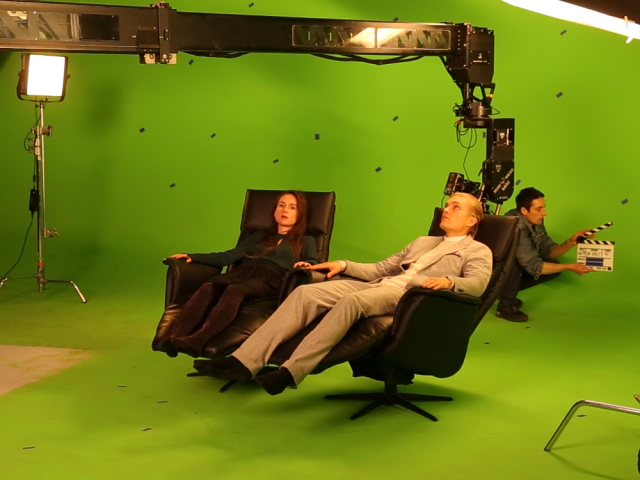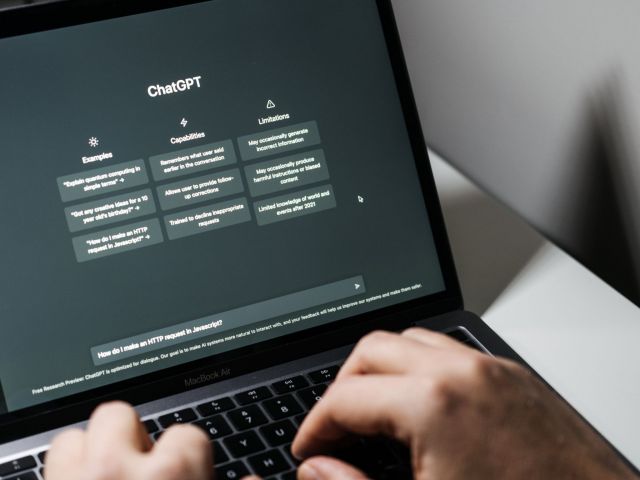CBS to review exam questions in response to ChatGPT developments

Photo: Shutterstock
CBS cannot detect if students use Artificial Intelligence to cheat on exams. The university has therefore initiated a review of all exam questions to test generative AI and its ability to solve student assignments. ChatGPT will soon be taking CBS exams.
This winter, all course coordinators using take-home and open book exams have been given a task – find out which exam questions are easy for AI to solve – and change them.
When ChatGPT’s exceptional ability to solve student assignments began receiving increased attention at the end of 2022, it also caught the interest of Jakob Ravn, Director of Teaching & Learning. His unit helps faculty develop pedagogical skills and supports the development of programmes and courses at CBS.

Jakob Ravn, Director of Teaching & Learning at CBS. Photo: Caroline Hammargren
Jakob Ravn had already started chairing a group that is reviewing the quality of exams at CBS. When Open AI released its free version of ChatGPT-3 last November, doing something about AI’s ability to take exams became an urgent aspect of the quality assurance work, which is done over the longer term.
“We are addressing this specific issue as something we need to pay attention to right now, right here,” he says.
Can CBS currently detect if a student has used generative AI for an exam?
“Probably not. There is preliminary software for detecting responses based on AI, but so far, I don’t think it’s possible to do in a very good way. And it’s definitely not possible for CBS to implement such a solution in such a short time.”
We need to review all our exam questions to figure out where the challenges lie. Where is it most likely that the student can use a AI platform to receive a good grade on a response? In those cases, we need to change, if not the exam format, at least the exam questions.
Jakob Ravn, Director of Teaching & Learning
Rather, it will be up to programme directors and coordinators to scrutinise their exam questions in terms of how well an AI tool performs on them.
“We need to review all our exam questions to figure out where the challenges lie. Where is it most likely that the student can use a AI platform to receive a good grade on a response? In those cases, we need to change, if not the exam format, at least the exam questions.”
How are you testing it?
“The simple review is to test on an AI platform, ChatGPT for example, and to see how the response is.”
AI will change how exams are done
By the next exam period, Jakob Ravn’s aim is that all exam questions at CBS will be adapted with regards to AI. The fact that CBS is just finishing up an exam period where cheating with AI cannot be detected is not a concern.
“I don’t think it’s a major issue. In the long term it’s a major potential, actually. But we need to make sure we assess the performance of students and not the performance of a chatbot.”
Jakob Ravn also stresses that many assessments and questions are already of a type that cannot be solved through generative AI. One example could be an assignment where students are asked to interview people within a specific industry – ChatGPT won’t do that.

The chatbot ChatGPT put AI high on the education agenda, after it was made freely accessible last November. Photo: Shutterstock.
But he does foresee changes to the way exams are designed.
“We will not be able to outsmart the AI platforms in the long run. We cannot just reformulate exam questions, we also need to find other ways of examining the students.”
Do you think there will be less take-home exams?
“Probably yes. Some take-home exams might be replaced by other formats, but some might just be revised.”
If it makes something much easier, then it’s a valuable tool that we need to use.
Jakob Ravn, Director of Teaching & Learning
Jakob Ravn is excited about the potential of AI for teaching and learning.
“Exams are attracting most attention and concern now and will probably do so in the coming month, maybe semester, and year. But the potential is far bigger in relation to teaching and education.”
On example is feedback. He thinks that AI technology could be used to give feedback on smaller assignments where students currently might not be receiving any, or very little.
“If you have a group of 120 students you can maybe provide feedback for one assignment each in a semester. I’m sure we can use AI to provide opportunity for students to receive feedback, based on our own criteria, that is AI-supported and in some cases even generated.
“If it makes something much easier, then it’s a valuable tool that we need to use,” he says.
Adapting, but slowly
In terms of learning, an oft-mentioned concern is that generative AI will make students lose their ability to write argumentative or well-structured text.
Jakob Ravn doesn’t have a clear tactic for how to ensure that students learn writing in the future, but he thinks that one aspect is making them aware of its importance.
“I would like to have a discussion with the students about how important it is that they still read and write, even though they can produce a lot of smart things with technology. They still need to learn the skills, because if you don’t produce the text yourself, you don’t have the same kind of understanding of it. And maybe we can even use AI technologies for students to learn academic writing.”
While he agrees that the response from Danish universities has perhaps not been fast, Jakob Ravn doesn’t think that it is necessarily bad.
“Universities tend to be quite conservative and that’s also our strength. But, of course, it also prevents us from being as agile as some of the private learning providers or other institutions. We will probably be slower to adapt to technological advancements. I hope we will also be better at using the technologies, and not just exploiting them. And that we will have a critical discussion on how to use, and if we should use, them. I think that a slightly slower adaption leaves room for those discussions.”
Shortly before this article was published, CBS Senior Management announced on the intranet platform Share, that it is their “vision and opinion that CBS must integrate the use of artificial intelligence like ChatGPT, not only in teaching but also exams.”
“We expect to update our rules and exam forms over the coming semesters and open for the use of AI programmes in the teaching and exam activities. […] We will not be preventing students from using AI tools but integrate them in a way ensuring that a diploma from CBS continues to be a solid assessment of the student’s skills.”





































































































































Comments